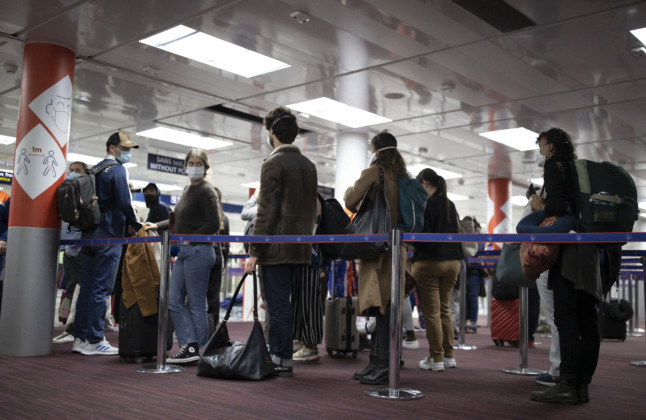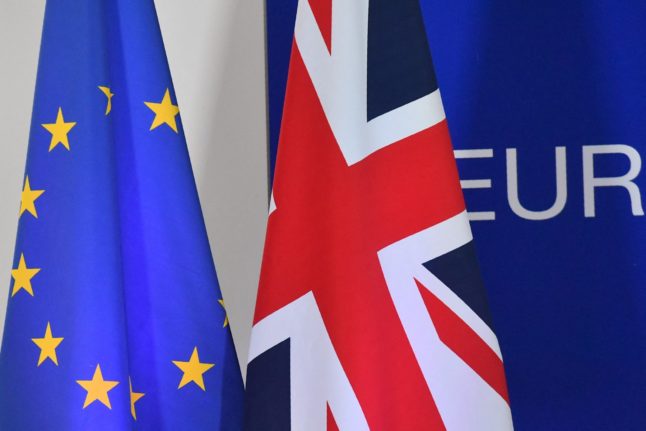The Covishield vaccine is mainly used in India and Africa, but is also widely administered in the UK. Here’s everything you need to know about travelling to France if you have received the Covishield jab.
What’s the latest?
France will now accept the Covishield vaccine for travel purposes, as well as for use with the country’s health pass, which will soon be necessary for everyday activities such as going to the cinema or eating at a restaurant, Prime Minister Jean Castex announced on Saturday July 17th.
Covishield is the version of the AstraZeneca vaccine produced under licence by the Serum Institute in India. It is made to the same specifications as Vaxzevria, the version produced in Europe, but is not currently approved by the European Medicines Agency.
The UK and Indian governments had been putting pressure on the EU to recognise the jab. Several European countries already allowed visitors vaccinated with Covishield, including Germany and Spain. But as The Local reported earlier this month, France previously considered travellers from the UK, India and Africa who received the Covishield jab to be “unvaccinated”.
From Sunday July 18th, they will be treated the same as those who received a Pfizer/Comirnaty, Moderna, Johnson & Johnson, or AstraZeneca/Vaxzevria injections.
What are the requirements for travel for people vaccinated with Covishield?
Castex also announced on Saturday that France was lifting all restrictions for vaccinated travellers. Whatever the country of departure, proof of vaccination means there is no need to show an essential reason for travel, a negative Covid test, or to observe a quarantine period.
READ ALSO Unvaccinated travellers to France from UK must show 24-hour test from Sunday
The statement said the exemption was in place because “vaccines are effective against the virus, and in particular its variant Delta”.
“We nonetheless strongly advise against travel from France to countries on the “red” list,” the website for France’s foreign ministry states.
Non-vaccinated travellers from “red zone” countries including India must have an essential reason for travel, take a test before and after travelling, and quarantine for ten days on arrival.
What does my vaccine certificate need to show?
France will now consider people fully vaccinated one week after they received their second dose of Pfizer/BioNTech, Moderna and AstraZeneca, including Covishield, instead of 14 days previously, and 28 days after their Johnson & Johnson jab.
In order to travel to France, you will need to show your vaccine certificate at the border. This needs to be a certificate from the issuing health authority that complies to EU or WHO standards – showing the person’s details, date of vaccination, type of vaccine used and a batch number – and can be presented either on paper or in a digital format.
Can I use the French health pass?
Once you have arrived in France, your vaccination certificate should also allow you to access establishments such as museums, bars, restaurants, as well as long-distance train and bus travel.
CALENDAR: The key dates to know as France tightens Covid restrictions
France has announced that Covishield can now be used for the health pass which must be shown to enter many leisure and cultural venues.
French residents can upload their vaccination certificate to the TousAntiCovid app, but it is more difficult for people vaccinated outside of the EU. Those coming from the UK can present an NHS Covid Pass instead.
Government spokesman Gabriel Attal recently said there would be a ‘relaxation’ of the rules for people vaccinated outside the EU who cannot easily use the French health passport, and more information should be provided by July 21st, when the pass is extended to leisure and cultural venues hosting more than 50 people.
You can read our tourists’ guide to using France’s health pass HERE.



 Please whitelist us to continue reading.
Please whitelist us to continue reading.
Great news!!
That is for ones good news, you return from any country without needing negative covid tests if vaccinated, now the next step should be that vaccinated people can choose or they want to wear masks. In anticipation I cut out two layers already, my mask is now a sinle layer summer mask now, lol.